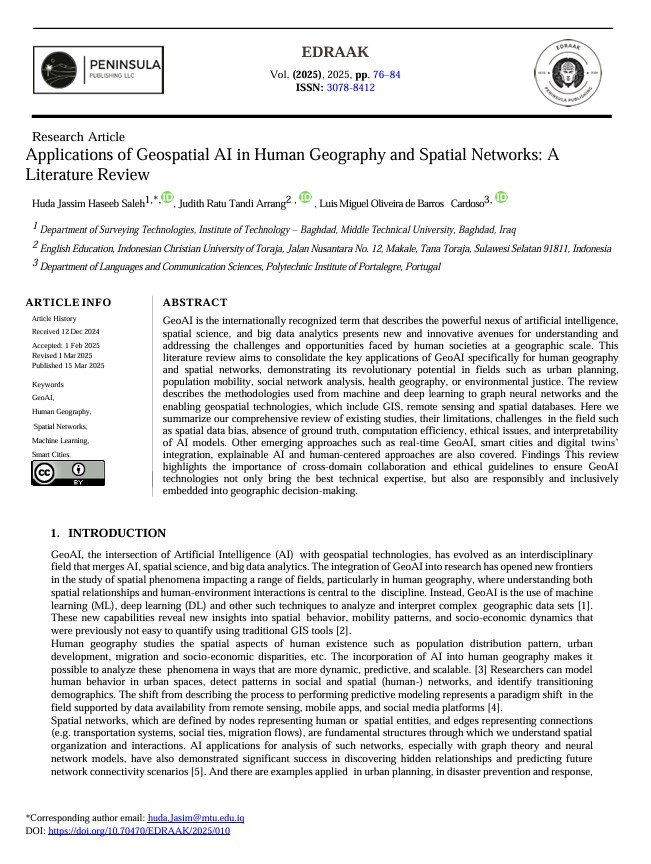Applications of Geospatial AI in Human Geography and Spatial Networks: A Literature Review
Main Article Content
Abstract
GeoAI is the internationally recognized term that describes the powerful nexus of artificial intelligence, spatial science, and big data analytics presents new and innovative avenues for understanding and addressing the challenges and opportunities faced by human societies at a geographic scale. This literature review aims to consolidate the key applications of GeoAI specifically for human geography and spatial networks, demonstrating its revolutionary potential in fields such as urban planning, population mobility, social network analysis, health geography, or environmental justice. The review describes the methodologies used from machine and deep learning to graph neural networks and the enabling geospatial technologies, which include GIS, remote sensing and spatial databases. Here we summarize our comprehensive review of existing studies, their limitations, challenges in the field such as spatial data bias, absence of ground truth, computation efficiency, ethical issues, and interpretability of AI models. Other emerging approaches such as real-time GeoAI, smart cities and digital twins’ integration, explainable AI and human-centered approaches are also covered. Findings This review highlights the importance of cross-domain collaboration and ethical guidelines to ensure GeoAI technologies not only bring the best technical expertise, but also are responsibly and inclusively embedded into geographic decision-making.
Article Details

This work is licensed under a Creative Commons Attribution 4.0 International License.
